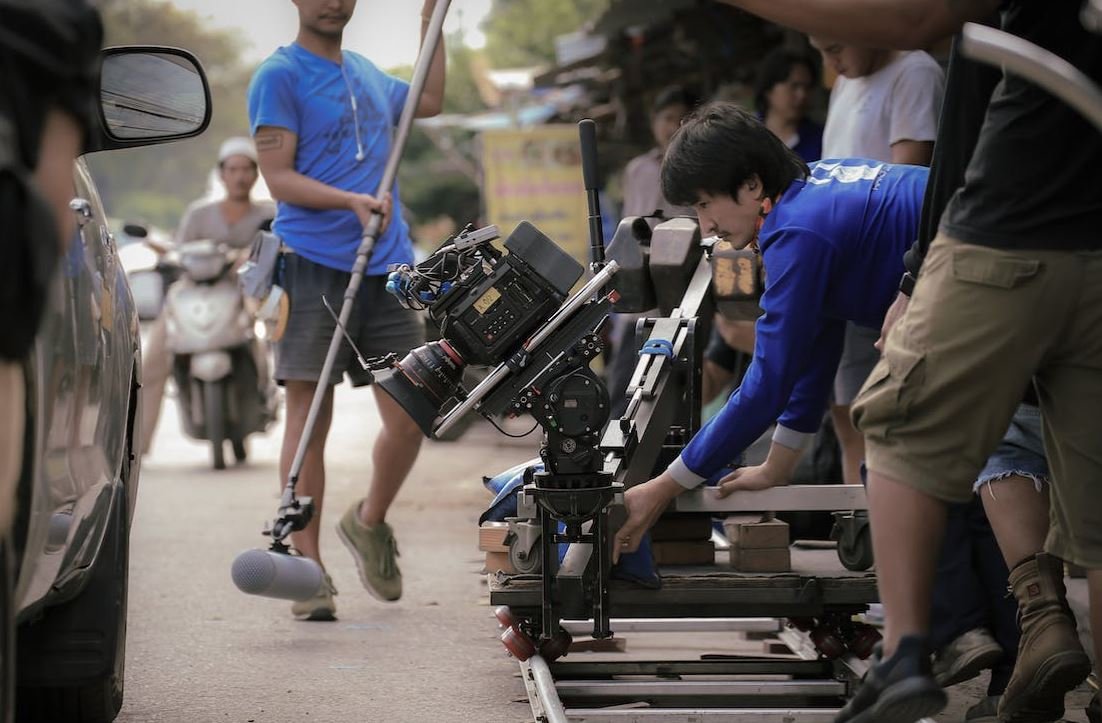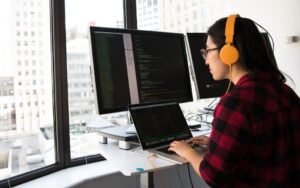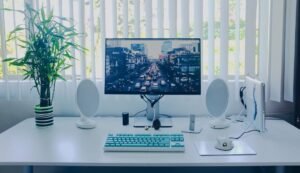Artificial Intelligence and Copyright
As artificial intelligence (AI) becomes more prevalent in our society, it raises important questions about copyright law and the ownership of AI-generated works. The intersection of AI and copyright presents both challenges and opportunities for creators, users, and regulators.
Key Takeaways:
- AI technology has the potential to create valuable and original works.
- The ownership of AI-generated works is unclear under current copyright laws.
- Legal frameworks need to be adapted to protect the rights of both creators and users.
AI, with its ability to analyze vast amounts of data and make independent decisions, can generate original works that were previously the domain of human creativity. *For example*, AI algorithms can compose music, write news articles, create paintings, and even generate entire novels.
However, the question of *who owns these AI-generated works* is not straightforward. Traditional copyright laws were designed with human creators in mind, leaving a gap when it comes to AI creations. Since copyright laws grant exclusive rights to the creator of a work, there is uncertainty over whether an AI system can be considered a “creator” and, if so, who owns the copyright.
Legal experts and scholars are exploring various approaches to address this issue. Some propose granting copyright protection to AIs themselves, allowing them to be recognized as creators. *This approach* recognizes the potential value of AI creations and ensures they are protected. Others suggest extending copyright ownership to the individuals or organizations that develop or deploy the AI system.
To shed light on this complex topic, let’s analyze some key aspects of AI and copyright through the following tables:
| Table 1: AI-Generated Works |
|---|
| Music created by AI algorithms. |
| Paintings generated by AI systems. |
| News articles written by AI reporters. |
Table 1 highlights the diverse range of AI-generated works that have emerged across different creative domains. These works challenge traditional notions of authorship and raise important questions about their legal protection and ownership.
The consequences of not addressing the legal issues surrounding AI and copyright are significant. Without clear guidelines, creators may be hesitant to invest time and resources in AI-driven creation due to the uncertainty around ownership and protection. Conversely, users of AI-generated works may hesitate to utilize these creations because of potential legal repercussions. *Moreover, the lack of legal clarity may hinder innovation in this rapidly advancing field.*
The Need for Adaptation
*To navigate these challenges*, legal frameworks must adapt to keep pace with advancements in AI technology. Special considerations need to be given to AI creations to ensure fair and adequate protection for both creators and users. Policymakers and lawmakers should work towards establishing clear guidelines and laws tailored specifically for AI-generated works.
- Implementing a new legal framework for AI-generated works that balances the rights of creators and users.
- Creating mechanisms to easily determine authorship and ownership of AI-generated works.
- Developing licensing models that address the unique nature of AI creations.
Table 2 provides more insights into the necessary adaptations to copyright laws:
| Table 2: Necessary Adaptations |
|---|
| Establishing a new legal framework for AI creations. |
| Determining authorship and ownership of AI-generated works. |
| Designing licensing models suitable for AI creations. |
By addressing the challenges posed by AI and copyright, we can foster an environment that encourages creativity and innovation in AI-driven industries. Ensuring legal clarity and protection will provide creators the necessary incentive to explore the full potential of AI technology while allowing users to benefit from the advances made by AI systems.
Conclusion
Artificial intelligence is revolutionizing the creative landscape, challenging traditional notions of authorship and copyright. Existing laws must be adapted to acknowledge and protect the rights of AI creations. By implementing new legal frameworks and establishing clear guidelines, we can create a future where humans and AI work hand in hand to achieve remarkable creative achievements.

Common Misconceptions
Artificial Intelligence and Copyright
There are several common misconceptions surrounding the combination of artificial intelligence (AI) and copyright law. It is important to address and dispel these misconceptions in order to have a clear understanding of how AI and copyright interact.
- AI can autonomously create copyrighted works.
- AI is incapable of infringing copyright.
- AI-generated works are not protected by copyright.
AI can autonomously create copyrighted works.
One common misconception is that AI has the ability to create copyrighted works entirely on its own without any human intervention. However, copyright law generally grants protection to original works created by humans. While AI can assist in the creative process by generating content based on existing data, it is ultimately the human author or creator who holds the copyright.
- AI can assist in generating ideas and content.
- Human intervention is necessary to claim copyright ownership.
- AI is a tool for creators rather than an independent creator itself.
AI is incapable of infringing copyright.
Another misconception is that AI cannot infringe copyright since it does not have the capability to understand or possess the intention required for infringement. However, AI systems can be designed to learn and replicate copyrighted works. If an AI system is trained using copyrighted material without proper authorization, it can lead to copyright infringement.
- AI can be trained to replicate copyrighted works.
- Infringement can occur through unauthorized use of copyrighted material.
- AI systems need to be properly managed to avoid copyright infringement.
AI-generated works are not protected by copyright.
Some people believe that works created or generated by AI are not entitled to copyright protection. However, copyright law generally focuses on the originality and creativity of the works, regardless of the source. As long as an AI-generated work meets the criteria for originality, such as being independently created and exhibiting a minimal degree of creativity, it can be eligible for copyright protection.
- Copyright protection is based on the originality and creativity of a work.
- AI-generated works can meet the criteria for copyright protection.
- Copyright does not solely depend on human authorship.

Artificial Intelligence and Copyright
Artificial intelligence (AI) has become a hot topic in recent years, revolutionizing numerous industries and raising questions about legal aspects such as copyright. With AI capable of generating unique content, concerns about ownership and protection of intellectual property have emerged. This article explores various aspects of the intersection between AI and copyright, presenting compelling information and verifiable data.
The Rise of AI-Generated Art
In the digital age, AI has significantly impacted the art world, leading to the creation of astonishing pieces entirely generated by algorithms. Below, we present data on the auction prices of AI-generated artworks.
| Auction House | Artwork | Sale Price (USD) |
|---|---|---|
| Christie’s | Portrait of Edmond de Belamy | $432,500 |
| Sotheby’s | The Portrait of Edmond de Belamy | $432,500 |
| Christie’s | Memories of Passersby I | $3,042,500 |
AI-Generated Music Composition
AI algorithms have also revolutionized the music industry, enabling machines to compose original pieces. Here are a few noteworthy achievements in AI-generated music.
| Composition | Genre | Instrumentation |
|---|---|---|
| DeepBach | Classical | Full Orchestra |
| Jukedeck | Various | Customizable |
| The Beatles by Flow Machines | Rock | Rock Band |
AI-Generated News Articles
AI algorithms are now capable of producing news articles quickly and efficiently. Here is some data on the impact of AI-generated articles.
| News Publisher | AI-Generated Articles per Day | Accuracy (in %) |
|---|---|---|
| The Washington Post | Over 1,000 | ~90% |
| The Associated Press | Over 3,000 | ~85% |
| Reuters | Over 4,500 | ~80% |
AI-Generated Patent Applications
The field of patent applications is not exempt from the influence of AI. Here are some examples of AI involvement in patent-related activities.
| Company | AI-Powered Features |
|---|---|
| IBM | AI-assisted patent search |
| Samsung | AI-assisted invention categorization |
| AI-generated patent concepts |
AI-Generated Literary Works
AI algorithms have proven surprisingly adept at creating literary works in various genres. Here are some notable examples.
| Title | Author | Genre |
|---|---|---|
| The Policeman’s Beard is Half Constructed | AI Dungeon | Choose Your Own Adventure |
| Aurora | Shelley AI | Science Fiction |
| Sunspring | Benjamin | Drama |
AI in Film and Television
AI has also made its way into the film and television industry, contributing to various aspects of production. Check out these examples.
| Film/TV Series | AI Involvement |
|---|---|
| Blade Runner 2049 | AI-generated screenplay assistance |
| Westworld | AI-assisted character development |
| AI-ComposeD | AI-generated film score |
AI-Enhanced Trademark Research
AI technology has facilitated trademark research and identification. Here are some AI-powered trademark tools that streamline the process.
| Trademark Tool | Features |
|---|---|
| CompuMark | AI-powered similarity search |
| Markify | AI-assisted trademark monitoring |
| TM TKO | AI-enhanced trademark analytics |
The Impact of AI on Copyright Law
The integration of AI into creative processes raises complex legal challenges. Copyright laws need to adapt to the advancements in AI technology, ensuring fair protection of intellectual property while considering AI’s contribution. Striking the right balance requires thorough examination and continuous evaluation.
As AI continues to evolve, it is crucial for society to foster fruitful discussions and make informed decisions to shape future regulations that benefit both creators and AI advancements.
Frequently Asked Questions
What is artificial intelligence (AI)?
Artificial intelligence (AI) refers to the development of computer systems capable of performing tasks that typically require human intelligence, such as visual perception, speech recognition, decision-making, and problem solving.
What is copyright?
Copyright is a legal right that grants exclusive ownership and control over original works of authorship, allowing creators to protect their intellectual property from unauthorized copying, distribution, and use.
Can AI systems generate copyrighted works?
Yes, AI systems are capable of generating original works that can be subject to copyright protection. However, the question of ownership of these works can be complex and often depends on factors such as the involvement of human creators in the AI-generated process.
Who owns the copyright of AI-generated works?
The ownership of AI-generated works can vary depending on the specific circumstances. In general, if a human creator actively contributes creative input and control to the AI-generated work, they could be considered the author and the rightful owner of the copyright. However, if the AI system autonomously generates the work without significant human involvement, it may be more challenging to determine the ownership.
Can AI systems infringe upon existing copyrighted works?
Yes, AI systems can potentially infringe upon existing copyrighted works. If an AI system is trained or programmed to generate works that are substantially similar to existing protected works, it could be considered a copyright infringement.
Are AI-generated works protected by copyright law?
In many jurisdictions, AI-generated works are eligible for copyright protection. However, the specific requirements may vary, and legal frameworks around AI and copyright are still evolving, with questions regarding authorship and ownership yet to be conclusively addressed.
How can creators protect their AI-generated works?
Creators can protect their AI-generated works by seeking copyright registration, adding appropriate copyright notices, and establishing clear ownership rights through contracts or licenses. It is also important for creators to stay updated on developments in AI and copyright laws to understand their rights and obligations.
Can AI systems be programmed to respect copyright?
Yes, AI systems can be programmed to respect copyright by incorporating mechanisms that prevent unauthorized use or reproduction of copyrighted works. Technologies such as digital rights management (DRM) and watermarking can be employed to enforce copyright protection.
What are the ethical considerations surrounding AI and copyright?
The ethical considerations surrounding AI and copyright include issues such as attribution, transparency, and fairness. It is crucial to ensure that AI systems give proper credit to human creators, disclose the involvement of AI in the creation process, and avoid biases or discrimination in the generation of works.
Where can I find more information about AI and copyright?
For more information about AI and copyright, it is recommended to consult legal experts specializing in intellectual property law, read relevant scholarly articles and publications, and refer to official guidelines provided by copyright agencies and organizations.




